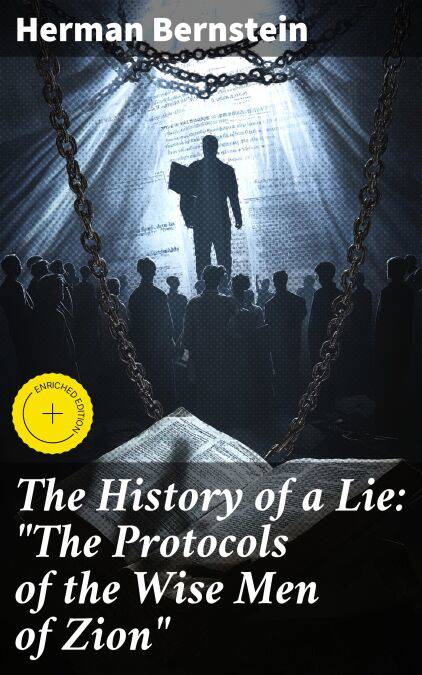
- Afhalen na 1 uur in een winkel met voorraad
- Gratis thuislevering in België vanaf € 30
- Ruim aanbod met 7 miljoen producten
- Afhalen na 1 uur in een winkel met voorraad
- Gratis thuislevering in België vanaf € 30
- Ruim aanbod met 7 miljoen producten
Zoeken
The History of a Lie: "The Protocols of the Wise Men of Zion" E-BOOK
Unveiling the Deceptive Origins of Anti-Semitic Propaganda
Herman Bernstein
E-book | Engels
€ 1,99
+ 1 punten
Omschrijving
In "The History of a Lie: 'The Protocols of the Wise Men of Zion,'" Herman Bernstein meticulously deconstructs the notorious anti-Semitic propaganda piece known as the Protocols. Through rigorous examination of historical context and literary technique, Bernstein exposes the origins, fabrication process, and widespread ramifications of this document, written in the early 20th century. His scholarly approach combines investigative journalism with socio-political analysis, creating a compelling narrative that reveals how a single deceit has fueled hatred and discrimination against Jewish communities for over a century. Herman Bernstein was an accomplished journalist and editor, deeply affected by the wave of anti-Semitic sentiment that plagued his time. His commitment to exposing truth and advocating for human rights influenced his desire to illuminate the damaging power of myths and lies. Bernstein'Äôs rich background in both Eastern European Jewish culture and American journalism provided him with a unique perspective to confront these issues head-on, making his work not only relevant but also essential in its historical context. This book is an invaluable resource for anyone seeking to understand the mechanisms of deception and hatred in society. Bernstein's timely exploration serves as a cautionary tale relevant to contemporary discourse, urging readers to critically engage with sources of information and recognize the importance of combating prejudice in all its forms.
Specificaties
Betrokkenen
- Auteur(s):
- Uitgeverij:
Inhoud
- Aantal bladzijden:
- 488
- Taal:
- Engels
Eigenschappen
- Productcode (EAN):
- 4057664642066
- Verschijningsdatum:
- 24/11/2019
- Uitvoering:
- E-book
- Beveiligd met:
- Digital watermarking
- Formaat:
- ePub

Alleen bij Standaard Boekhandel
+ 1 punten op je klantenkaart van Standaard Boekhandel
Beoordelingen
We publiceren alleen reviews die voldoen aan de voorwaarden voor reviews. Bekijk onze voorwaarden voor reviews.








